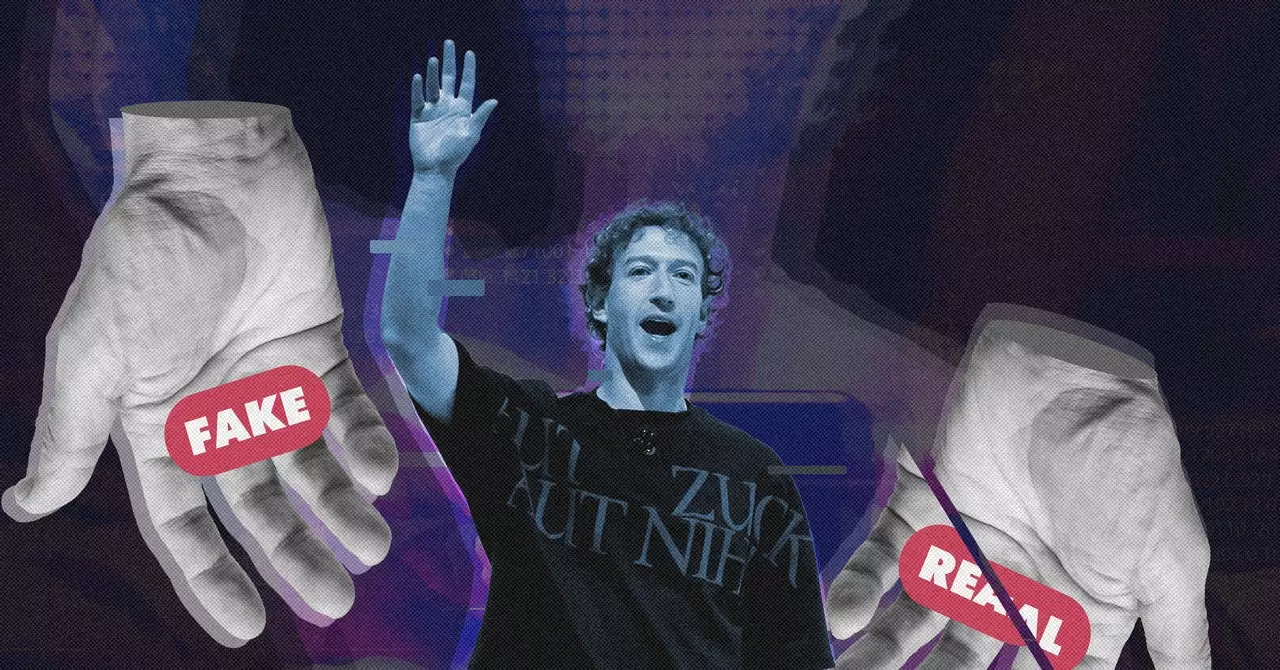In a startling turn of events, Meta, the parent company of Facebook and Instagram, has opted to dissolve its fact-checking program. This decision arrives in an environment marked by political upheaval, particularly in light of Donald Trump’s anticipated return to the presidential office. Analysts suggest that this 180-degree pivot might be a strategic response to growing competition from platforms like X’s Community Notes and the increasing pressure from various political factions, especially those opposing traditional journalism ethics.
The core of Meta’s newly proclaimed strategy revolves around user-generated content verification. CEO Mark Zuckerberg asserts that users will now play a pivotal role in determining the veracity of information circulating on the platforms. However, this shift raises significant questions about the efficacy and reliability of allowing a broader user base to distinguish fact from misinformation. Critics argue that the absence of professional fact-checkers could exacerbate existing issues of misinformation, particularly in politically charged climates.
In his remarks regarding the dismantling of the program, Zuckerberg suggested that fact-checkers were often guilty of political bias, which contributed to a decline in trust rather than fostering it. While he frames this as a move toward greater transparency and user empowerment, figures in the fact-checking community, such as Laura Zommer, challenge his assertions. Zommer, who previously led Chequeado, a prominent Spanish-speaking fact-checking organization, points out that the role of fact-checkers is not to censor but to provide context. As she aptly notes, the objective is to present citizens with better information, enabling informed decision-making—not curbing freedom of expression.
The contention around bias in fact-checking is reflective of a larger narrative propelled by factions who feel threatened by fact-based discussions. Zommer underscores that the dismissal of the program undermines its previous successes and dismisses the very science underpinning the work of fact-checkers. This skepticism is compounded by fears that misinformation, particularly regarding immigration—an issue that has dominated Trump’s rhetoric—might have dire consequences for vulnerable communities, especially Latinos who could be targeted by damaging narratives.
As Trump assumes office, communities will likely face ramped-up waves of misinformation, particularly regarding immigration, a frequent target of false narratives. Zommer’s assertion that data suggest heightened risk for Latino communities is echoed by substantial evidence from previous political cycles, underscoring the urgency of reliable information sources. The potential resurgence of anti-immigrant rhetoric—woven into the fabric of misinformation—could have real-world implications, causing fear and distrust within these populations.
Furthermore, the ramifications of dismantling the fact-checking initiative extend beyond U.S. borders, particularly affecting the fragile media landscape in Latin America. Pablo Medina, a disinformation research editor, emphasizes that financial support from Meta has been crucial for many smaller news organizations dedicated to fact-checking. Without this backing, the survival of these organizations may become increasingly tenuous. If they are unable to diversify their revenue streams quickly, the loss of financial stability might lead to significant layoffs or even closures within this ecosystem.
Meta’s retreat from the fact-checking enterprise conveys a troubling message to those engaged in journalism and information dissemination. It hints at a growing discontent with accountability measures intended to combat false information. Tai Nalon, CEO of Aos Fatos, highlights that Zuckerberg’s recent comments on censorship undermine the credibility of organizations aiming to foster accurate information. This sort of rhetoric resonates with populist movements that frequently decry mainstream journalism, positioning it as an adversary rather than a custodian of truth.
Additionally, the atmosphere of mistrust that accompanies such policies is alarming, as it frames disinformation as a legitimate discourse rather than a dangerous weapon. Fact-checkers have historically offered a buffer against escalating misinformation, paving the way for informed public debate. The move to dismantle these initiatives raises critical ethical concerns about the role of major tech companies in shaping the narrative landscape.
As we navigate through these transformative times, the commitment to maintaining an informed public sphere becomes increasingly imperative. The absence of structured and professional fact-checking mechanisms exposes society to the risks associated with unchecked information flow, making it crucial for media organizations to advocate for robust fact-checking paradigms to protect democratic discourse. The future of journalism—and the integrity of information itself—could very well depend on our ability to face these challenges head-on.

